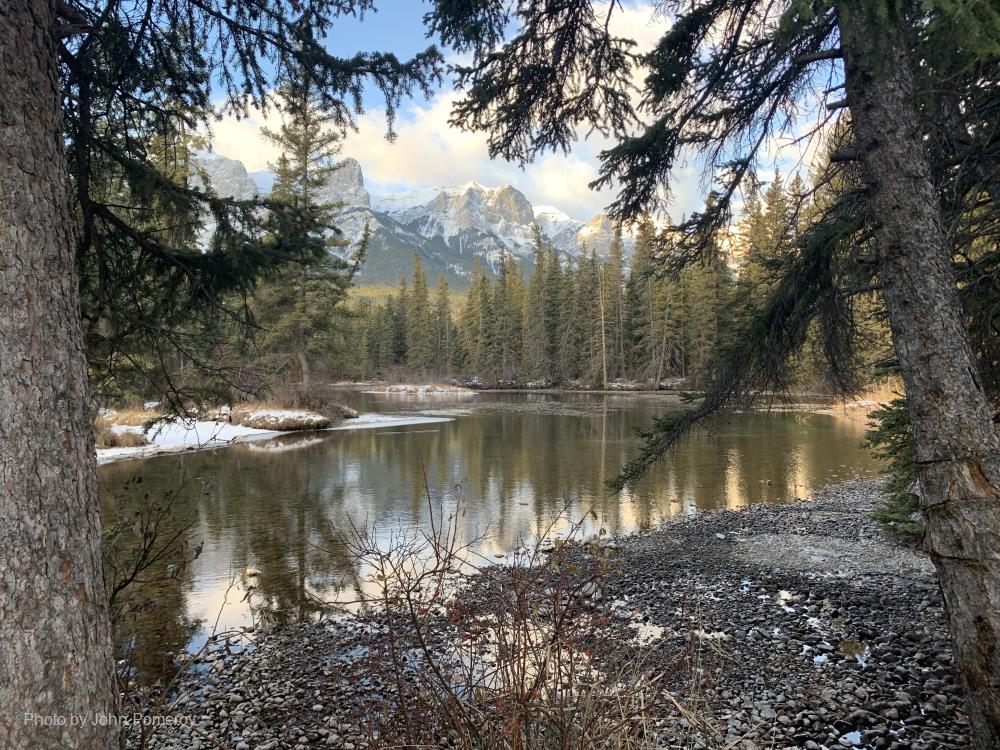
Related items loading ...
Section 1: Publication
Publication Type
Conference Presentation
Authorship
Aqdam Mehdi Moslemi, Baker Leanne F., Baltzer Jennifer L., Branfireun Brian A., Evans Marlene S., Laird Brian D., Low George, Low Mike, and Swanson Heidi K.
Title
Understanding How Ecosystem Interactions Drive Fish Mercury
Year
2022
Publication Outlet
AOSM2022
DOI
ISBN
ISSN
Citation
Mehdi Moslemi Aqdam, Leanne F. Baker, Jennifer L. Baltzer, Brian A. Branfireun, Marlene S. Evans, Brian D. Laird, George Low, Mike Low, and Heidi K. Swanson (2022). Understanding How Ecosystem Interactions Drive Fish Mercury. Proceedings of the GWF Annual Open Science Meeting, May 16-18, 2022.
Abstract
Mercury (Hg) is a toxic heavy metal that humans can be exposed to through fish consumption. Concentrations of Hg ([Hg]) in fish are influenced by complex biogeochemical and ecological interactions that occur at a range of spatial and biological scales. Elucidating these interactions is crucial to understanding and predicting fish [Hg], particularly in remote northern regions where fish are a critical food source, and where ecosystem processes are profoundly influenced by environmental perturbations. Using comprehensive data from 11 subarctic lakes in the Dehcho Region, Northwest Territories, Canada, we investigated how catchment, lake, and fish characteristics interact to influence [Hg] in Northern Pike (Esox lucius), a predatory fish of widespread commercial and subsistence importance. Results from structural equation modeling showed that 83% of among-lake variability in Northern Pike [Hg] was explained by fish growth rates (negative) and methyl Hg concentrations in benthic invertebrates (positive). These biological drivers of Northern Pike [Hg] were in turn influenced by higher concentrations of dissolved organic carbon, methyl Hg, and total Hg within lakes, which were ultimately associated with lower catchment elevation, larger relative catchment areas, and more proportional forest cover in catchments. Findings from this ecosystem-scale study further our understanding of potential effects of climate-induced changes on [Hg] in northern food fish, and refine designs for future monitoring programs.
Plain Language Summary
Section 2: Additional Information
Program Affiliations
Project Affiliations
Submitters
|
Mehdi Moslemi Aqdam | Submitter/Presenter | m3moslem@uwaterloo.ca | University of Waterloo |
Publication Stage
N/A
Theme
Water Quality and Aquatic Ecosystems
Presentation Format
10-minute oral presentation
Additional Information
AOSM2022 Northern Water Futures First Author: Mehdi Moslemi Aqdam (University of Waterloo, Department of Biology) Additional Authors: Leanne F. Baker (University of Waterloo, Department of Biology), Jennifer L. Baltzer (Wilfrid Laurier University, Department of Biology), Brian A. Branfireun (Western University, Department of Biology), Marlene S. Evans (Environment & Climate Change Canada, Water Science & Technology Directorate), Brian D. Laird (University of Waterloo, School of Public Health Sciences), George Low (Dehcho First Nations, Dehcho Aboriginal Aquatic Resources & Oceans Management), Mike Low (Dehcho First Nations, Dehcho Aboriginal Aquatic Resources & Oceans Management), and Heidi K. Swanson (University of Waterloo, Water Institute and Department of Biology)


 GWFNet
GWFNet Master
Master Data
Data Research
Research Map
Map
 Advanced
Advanced Tools
Tools
 . . .
. . .
 Metadata Editor
Metadata Editor
 Record List
Record List
 Alias List Editor
Alias List Editor
 Legacy sites
Legacy sites